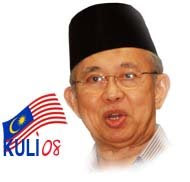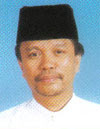China offers Sime Darby multi-billion development project
By WONG SAI WAN and CELESTE FONG
BEIJING: Sime Darby has been offered a multi-billion dollar development project in the Weifang prefecture city covering almost 700 sq km – making it one of the biggest venture ever undertaken by a foreign company in China.
Calling it an “iconic milestone project”, Prime Minister Datuk Seri Najib Tun Razak said the development would be undertaken by Sime Darby as the lead agency with many Malaysian companies involved.
“This is definitely more than a township project. This is massive and has great potential for many Malaysian companies. This is very exciting,” said Najib to Malaysian reporters at the end of his first official visit to China as Prime Minister.
He said he had met the Communist Party secretary of the Shandung province over the offer to Sime Darby.
“He has given it in writing confirming the offer and Sime Darby has confirmed its interest. We will follow up on this,” Najib added.
Weifang is known as the kite capital of the world because it is a popular past time for the locals and international kite-flying festivals are held there annually.
The present city has a population of 8.5 million and covers some 15,000 sq km. It is located 500km South of Beijing.
Najib disclosed that the Malaysian and Chinese Governments had also come to an understanding on several other huge projects in China and Malaysia.
In his discussions with his Chinese counterpart Wen Jiabao, Najib said he told the Chinese leader that Malaysia was considering offering the rail double-tracking project from Gemas to Johor Baru to a Chinese company.
Asked if this was the same project that was to have been undertaken by a Chinese company before it was shelved in 2003, Najib said it was a different one as the double tracking had already reached Gemas.
The China Government in return, was willing to offer soft loans for this project from a US$10bil fund they had set aside for infrastructure projects meant for Asean countries.
They were also willing to extend a US$15bil trade credit facility.
Najib said he also offered China a commercial banking licence in Malaysia provided the same was offered to a Malaysian bank and the two central banks had been instructed to follow up on this matter.
In their discussions, the Chinese side also expressed the need for the Mengkuang Dam project in Penang to be given to a Chinese company as was agreed upon previously and Najib said this project would be given to the Chinese firm to build the dam on a joint-venture basis with a Malaysian company.
China had also expressed interest in the energy sector especially in the Bakun project as well as the transmission of the power to the peninsular.
Najib said two multi-billion projects in Sarawak – the pulp paper mill and the aluminium smelting plant – was likely to go ahead as “both sides seems to have sorted out most of the problem.”
On Thursday, Acacia Cellulose International Sdn Bhd (a joint-venture company based in Sarawak) signed a memorandum off understanding with China National Machinery and Equipment Import and Export Corporation for the Chinese firm to build the mill.
The project is estimated to be worth over RM4bil.
Najib said he had also given Malaysia’s undertaking to honour the deal on the construction of the Second Penang Bridge that it is to be jointly constructed by a China construction company.
“The first progress payment of RM300mil has already been paid and we are now studying the details of the soft loan being offered by the Chinese Government for this project,” he added.
Fifteen other MoUs and agreements were also signed and it is estimated that the projects, if they went ahead would be worth some RM6.4bil.
In his discussions with Chinese leaders, Najib said he identified five sectors that big companies from China could invest in Malaysia.
These are infrastructure, energy, certain manufacturing industries, services and finance.
On the 16 MoUs, Najib said the Malaysian government had scrutinised all of them and found them to be viable and likely to take off.
“We rejected many other MoUs because of some doubts. This is despite intensive lobbying by those in the private sector,” he added.














